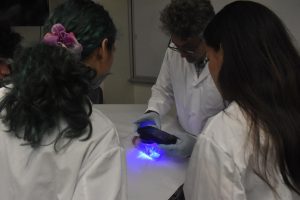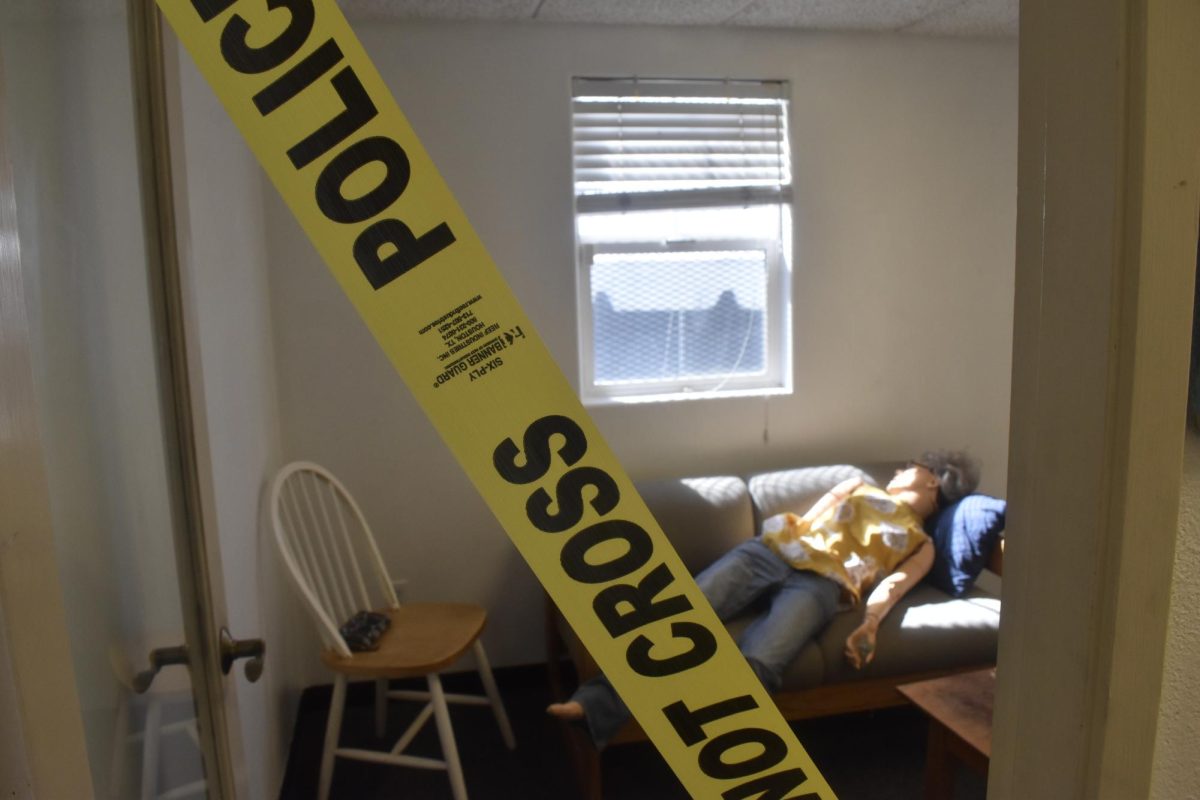Unlocking mysteries, solving puzzles, and revealing the truth make shows like “Bodies,” “Unbelievable,” and “NCIS” interesting. At Chaminade, you can learn how to solve mysteries on your own through the Forensic Science program.
Chaminade has designed the Forensic Science minor to be accessible to students of any background. Many students might think that subjects like chemistry and math are intimidating or boring. The Forensic Science minor focuses more on the forensic side of the program than the science side.
“I would like to see more students interested in the minor, and in our opinion, it doesn’t matter what your major is,” said David Carter, the Forensic Sciences director. “ … What we’ve done is we’ve crafted a minor that eliminates all of that and lets people focus on learning Forensic Science that we think any member of the general public should know. Like what kind of information a fingerprint can provide. Everybody should know how your DNA is used and what a DNA sample can say. Part of our goal in Forensic Science is not to have people have a career in Forensic Science, but to educate people to have a more informed society.”

Students can enroll in the Forensic Sciences Program as a minor by taking just seven courses that delve into key concepts with engaging instruction and hands-on learning. These courses allow you to gain vital investigative and lab experience. This includes required courses in Crime Scene Investigation, Forensic Anthropology, and Seminars. The department’s mission is to give its students the skills needed to advance justice through applying science and technology.
The Forensic Sciences major offers a comprehensive curriculum that includes instruction on the techniques for recognizing, documenting, and analyzing physical evidence, reviews of the legal system and ethical guidelines that govern forensic sciences, and, most importantly, hands-on applications of the scientific method in a lab.
Chaminade has a crime scene house, located by the outdoor basketball courts at the top of campus, dedicated to creating mock scenes for the Forensic Science program. Students work in teams of three to apply what they’ve learned in class to investigate a crime scene at the crime scene house. They are allowed to use real equipment that would be used during a real crime scene investigation.
The program is comprised of six faculty members and is taught by three main professors: Kari Inda, Carlos Gutierrez, and Carter.
“Our six faculty members all have several years of experience doing actual Forensic Science,” Carter said. “The students will be getting a Forensic Science education from people who have spent time in the field, consulted on cases, or, like the adjuncts, are still currently Forensic Scientists who teach at night.”
The forensic sciences major program has many opportunities through its internships, allowing students to make connections and land job opportunities. The program has internships with the Honolulu Police Department, where students can get internships with the Department of Medical Examiners and Investigators. Students also get to apply for internships with the FBI in Kapolei. There are also opportunities for students to get internships out-of-state for students looking to complete their internships during the summer back home.
According to Chaminade, 86% of Forensic Science graduates from the university have secured science-related positions.
“One of my greatest accomplishments thus far has been completing my Bachelor of Science in Forensic Science at Chaminade University in 2022,” Celine Mesiona Perez, a Chaminade alumna who is an admissions counselor here, wrote in an email. “Not only did the Forensic Science program provide me with enriching new wisdom and knowledge within this field, but it also allowed me to build confidence in myself as I pursue a career within this discipline. From the first to my last year in the program, my hands and mind were sharpened so that I could best execute proper responses and procedures for real-life tasks, responsibilities, and situations faced within various Forensic Science related careers. Although it will be two years since I have graduated from this program, I continue to walk with gratitude and remember significant lessons from my professors and these courses.”
